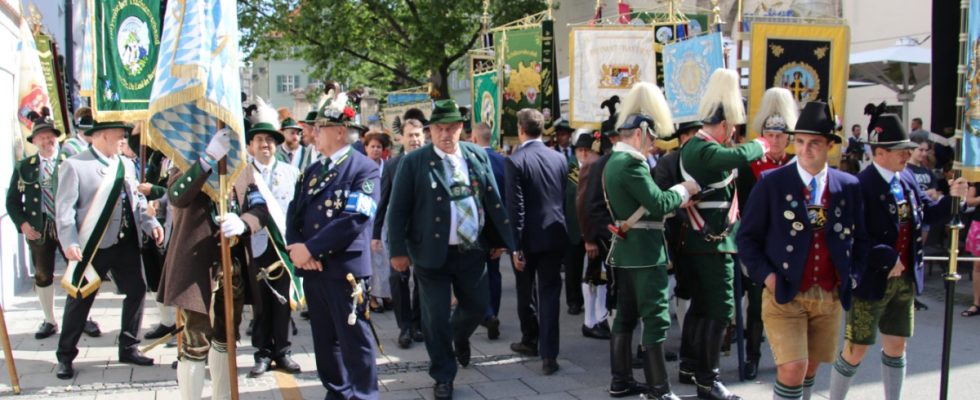stand
On Saturday, Franz Duke of Bavaria celebrated his 90th birthday with many guests. At the thanksgiving service in the Jesuit Church of St. Michael in Munich, dozens of delegations from Bavarian rifle and traditional clubs stood guard. Church sonatas by Mozart and Haydn’s Paukenmesse were played during the service, and it was a festive event in every respect. The ceremony, of course, took time, so the flag deputations needed solid stamina. Although the mountain riflemen and Trachtler all had tight calves, many were of advanced age, and so it soon became apparent that one or the other participant could no longer stand it, as they say in Bavarian in such cases. Luckily there were chairs and benches in the side aisles, so that some could take a seat break there. After that, it was easier for the men to attend Mass, and it was gratifying to see that at the reception that followed in the Augustiner main building in the pedestrian zone, they were in good spirits and in good spirits again.
The word stand belongs to a long series of Bavarian verbs with the verbal prefix der- (derlaufen, dermermer, derblecken). There are prefixes of this kind in all German dialects, but the one with der- is typical for Bavarian, it does not occur anywhere else. The linguist Alfred Bammesberger says that the prefix der- (spoken da-) brings about a certain finality in the content of the statement. This also applies to Duke Franz’s birthday party: those who could no longer stand it simply sat down.
z’China
The current program of cabaret artist Annamirl Spies is called “Z’China dahoam”. The Lower Bavarian spent three years with her husband in the so-called Middle Kingdom and gained a lot of experience there, which she now presents on stage. A presenter on the Bayern 1 radio program recently had no idea why people say z’China. She asked Annamirl Spies if she could please translate it. She did that too, but without being able to properly explain why there was a “z”. “Z’China means stop in China,” she said. In fact, the “z” in Bavarian is common as a shortening of “to” as a preposition for location information. “I was at Minga drom yesterday,” they say, or: “I’m at Weber’s in Wölling.” Another again “is grad z’Amerika.” The “z” is also used for times: “Z’Mittag komm i hoam.” Or if the “to” expresses an excess, as can be read in Ludwig Merkle’s Bavarian grammar: “The path is two-way for me.”

